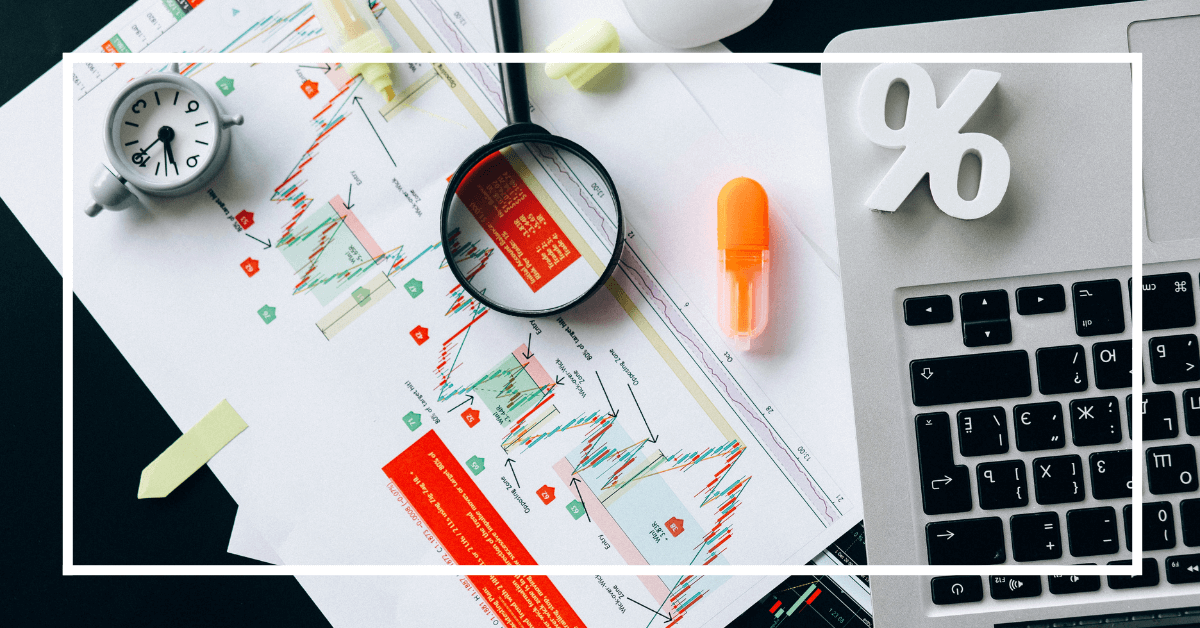I have been involved in forex trading for almost a year now, and just like you, I was once a beginner who has been into multiple resources to learn about how to do forex trading in the Philippines. What I’m going to do here in this blog post is share with you everything that every forex beginner should learn first before jumping in and start doing forex trading.
In the past, I enrolled myself in a paid online forex trading course to learn forex trading and how to do it here in the Philippines. But lucky for you today because I will share everything that I know about forex trading for free.
Forex trading is one of the best ways to multiply our hard-earned money. But it could also ruin our lives if we’re going to just do it without going through and learning the forex trading essential knowledge to become a successful and profitable trader. So make sure that before creating a forex trading account, you have what it takes to make a profit in the forex market.
What Is Forex Trading?
Forex trading, also known as foreign exchange trading or currency trading, is the buying and selling of currencies on the foreign exchange market. The goal of forex trading is to buy a currency at a low price and then sell it at a higher price in order to make a profit with the small changes in the currency prices.
It is the largest and most liquid market in the world, with trillions of dollars traded on a daily basis and it can be done on the foreign exchange market, which is open 24 hours a day, five days a week.
In forex trading, you are buying and selling currencies in pairs. For example, you might buy EUR/USD, which means you are buying the Euro and selling the US Dollar. You can trade a wide range of currencies, including major ones, such as the US Dollar (USD), Euro (EUR), Japanese Yen (JPY), and British Pound (GBP), as well as lesser-known ones like the Swiss Franc (CHF) and the Australian dollar (AUD).
For us to start trading forex, we need to have a forex broker that bridges us to the forex market. Through them, we can create a forex trading account that enables us to trade forex anywhere and anytime using a trading platform that our broker provided us with for free.
Before we go ahead and talk about what a forex broker is, let’s go ahead and see what are the pros and cons of doing forex trading in the Philippines.
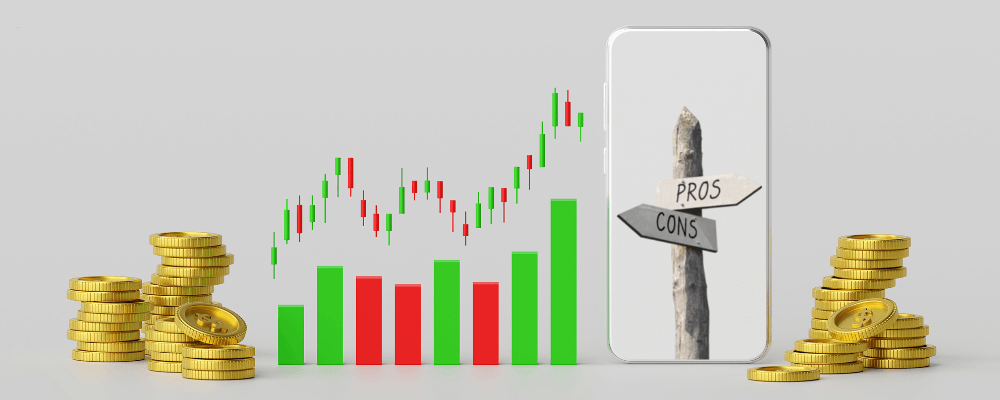
Pros And Cons Of Forex Trading
Below are the known advantages and disadvantages of forex trading. Make sure to read them carefully to have a full understanding and see if trading with foreign currency is something that you can do.
Pros:
- High Liquidity – The forex market is the largest financial market in the world, and it is open 24 hours a day, so there are always buyers and sellers, which means you can easily enter and exit trades.
- Leverage – Most forex brokers offer leverage, which allows you to trade with more money than you have in your account. This can be a powerful tool, but it can also magnify your losses, so it’s important to use it cautiously.
- Low Transaction Costs – The costs of trading forex are generally very low, especially when compared to other financial instruments such as stocks or futures.
- Low Barriers To Entry – You don’t need a lot of money to get started in forex trading. You can actually open an account with only a small amount of money. Also, many brokers allow you to trade with mini or micro lots, which can be a good way to manage your risk.
- Global Market – Forex trading allows you to take advantage of price movements in the global currency market, which means you can trade on a wide range of economic indicators from around the world.
Cons:
- Risk Of Loss – Trading forex carries a high level of risk, and you can lose more money than you have in your account. This is especially true if you use leverage, which can magnify your losses.
- Volatility – The forex market can be highly volatile, and prices can move quickly, which can be both a risk and an opportunity.
- Complexity – Forex trading involves a lot of technical analysis and can be complex, especially for beginners. It can take time to learn how to trade effectively, and many traders lose money before they become profitable.
- Lack Of Regulation – The forex market is largely unregulated, which means that there is little protection for traders if something goes wrong. This can make it difficult to find a reputable broker, and it can also make it harder to resolve disputes if something goes wrong.
Is Forex Trading Legal In The Philippines 2023?
Forex trading is not necessarily illegal in the Philippines, but it is not directly regulated by the Securities and Exchange Commission of the Philippines (SEC), which is the country’s financial regulatory agency. As a result, it is not easy for Filipinos to engage in forex trading through reputable and regulated brokers by the Philippine government.
However, there are some legal ways for Filipinos to participate in forex trading. Filipinos can do forex trading by opening a trading account with a foreign broker that is regulated by a reputable regulatory agency, such as the Financial Conduct Authority (FCA) in the UK or the Commodity Futures Trading Commission (CFTC) in the US.
Later in this article, I’m going to share with you the best forex brokers in the Philippines that I personally use ever since I started doing forex trading.
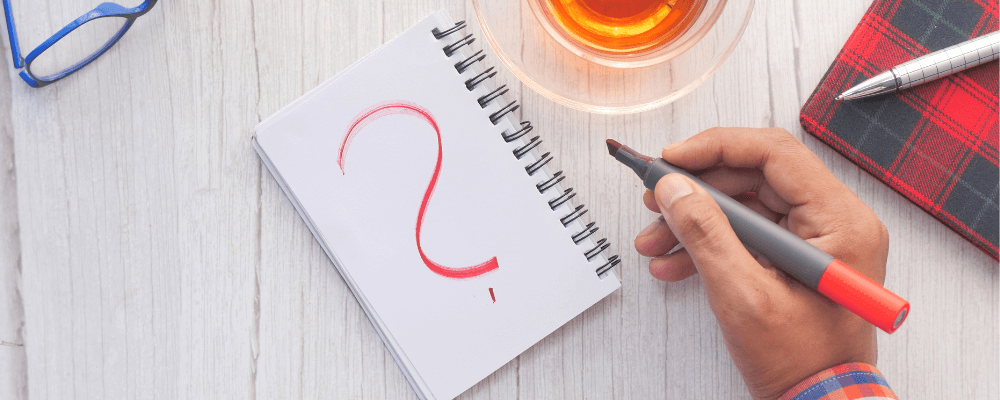
How To Start Forex Trading In The Philippines?
Forex trading simply means buying and selling foreign currencies. However, this doesn’t mean that you have to actually go out and buy currencies from money exchangers and banks. Foreign currency prices change very little and are measured using a unit called PIP, which is the fourth digit after the decimal point in a currency price. It means you need a massive amount of money to buy a currency and make a profit.
Aside from that, currency prices are so volatile that you need to “enter and exit” from trade within a very short period of time, which you cannot do if you’re buying and selling foreign currencies through money exchangers and banks. The good news is, all these problems can be solved by a forex broker.
1. Choosing A Forex Broker
Forex brokers act as intermediaries between buyers and sellers in the foreign exchange market, providing traders with access to a platform where they can buy and sell currencies. Aside from that, forex brokers also offer free educational resources and other support services to help traders improve their skills and knowledge.
When a trader wants to buy or sell a particular currency, they place an order through the forex broker’s trading platform. The broker will then match the trader’s order with that of another trader who wants to take the opposite position, or it may execute the trade through its own accounts if it has the necessary liquidity.
What Makes A Good Forex Broker?
Choosing a good forex broker is important because it can have a significant impact on your trading experience. A good broker will offer a range of features and services that can enhance your trading, such as fast execution speeds, a range of trading platforms, and educational resources. In contrast, a poor broker may have slow execution speeds, outdated or unreliable trading platforms, and little or no customer support.
Using a good forex broker can also help to protect you from fraud or unethical practices. Regulated brokers are required to follow strict guidelines and are monitored by government agencies, which can help to reduce the risk of fraud or other unethical practices.
Overall, taking the time to carefully research and choose a good forex broker can help to improve your trading experience and protect you from potential problems. Below are several key factors that make a good forex broker:
- Regulation – It is important to choose a broker that is regulated by a reputable organization, such as the Financial Conduct Authority (FCA) in the UK or the Commodity Futures Trading Commission (CFTC) in the US. This ensures that the broker adheres to strict guidelines and is monitored to prevent fraud or unethical practices.
- Execution Speed – Forex markets are fast-moving, and it is important that your broker is able to execute trades quickly and efficiently. A delay in execution could result in significant losses, especially in fast-moving markets.
- Trading Platforms – A good broker should offer a range of trading platforms to suit different traders, including web-based platforms, mobile apps, and advanced platforms for more experienced traders.
- Customer Service – Choose a broker with good customer service, including 24/7 support, helpful and knowledgeable staff, and a range of contact options such as live chat, email, and phone.
- Fees And Spreads – Look for a broker with competitive spreads and fees, as these can significantly impact your trading profits.
- Educational Resources – A good broker should offer a range of educational resources and tools, such as video tutorials, webinars, and market analysis, to help traders improve their skills and knowledge.
- Offers Demo Account – A forex demo account is a simulated trading account that allows you to test your trading strategies and practice trading in a risk-free environment. Demo accounts are funded with virtual money, so you can practice trading without the risk of losing real money.
Best Forex Broker In The Philippines
Best Forex Broker In The Philippines: XM Forex Broker & OctaFX Broker.
As I have mentioned in the first few lines of this article, I have been trading forex for almost a year now. I have tried multiple different forex brokers and settled on what I think are the best forex brokers for us Filipino forex traders. I will share the forex broker that I have personally used ever since I started forex trading.
In the Philippines, we do not have an operating local forex broker or brokers that are directly regulated by our government regulatory bodies like Security Exchange Commission (SEC). What we can do is open a trading account with a foreign broker that is regulated by a reputable regulatory agency, such as the Financial Conduct Authority (FCA) in the UK or the Commodity Futures Trading Commission (CFTC) in the US.
It’s important to always check the forex broker that you’re going to open a trading account with. Always remember that there are also lots of forex brokers out there that only aim to scam people. So if you’re from the Philippines, I would suggest you choose any of the brokers that I have listed below that I think are the best for us Filipino forex traders:
1. XM Forex Broker
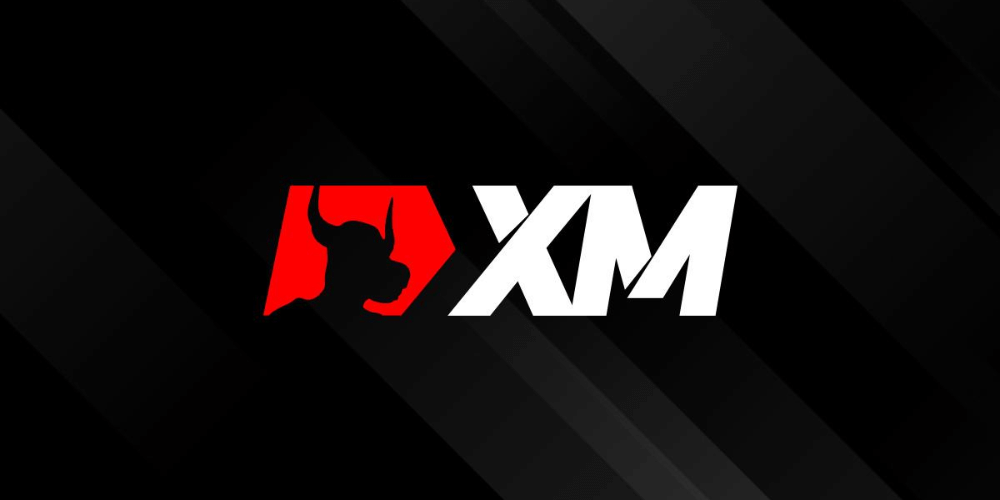
XM is one of the most popular forex brokers in the Philippines. They have the best customer service and payment methods like GCash, which are very convenient for us Filipinos. Once you signup for a trading account on XM, an account manager will be assigned to help you and guide you through to get started with the XM platforms.
They offer a range of trading instruments, including Forex, indices, commodities, and more. The company is headquartered in Cyprus and is regulated by several financial authorities, including the Cyprus Securities and Exchange Commission (CySEC) and the Financial Conduct Authority (FCA) in the UK.
Warning: There are lots of fake XM websites according to WiKiFx. So if you want to check XM, make sure to visit their official website. Just simply click here and you will be routed to XM’s official website.
XM offers several trading platforms, including the MetaTrader 4 and MetaTrader 5 platforms, which are popular among traders. The broker also offers a range of Filipino educational materials, including webinars and market analysis, to help traders improve their skills.
Watch the video above to learn about XM trading account types and see how to lessen your XM trading fees. Click here to create a demo account or claim their $30 bonus by creating a real trading account.
2. OctaFX Broker
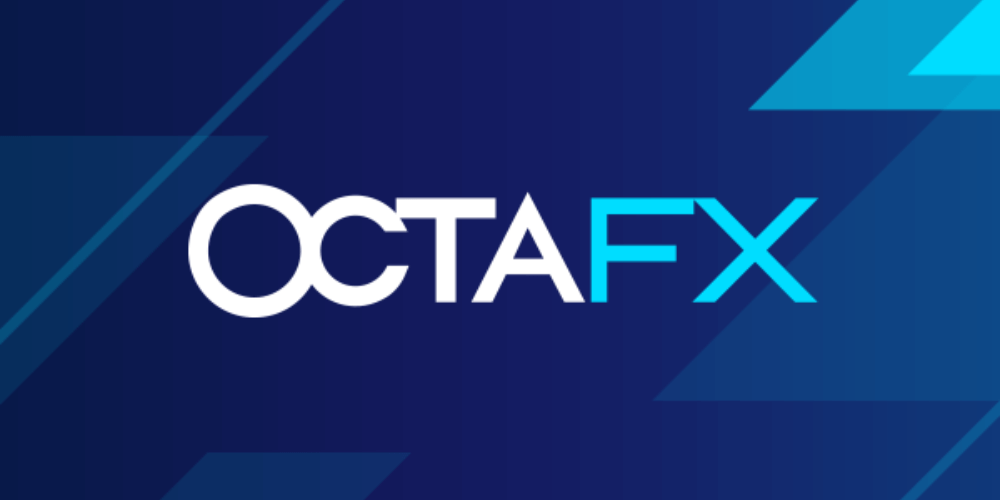
OctaFX is the second forex broker that I would recommend as one of the best forex brokers in the Philippines. Like XM, they have amazing customer service and client support. What I like the most about OctaFX is the copy trading feature that they have. If you don’t want to do forex trading yourself, you can just copy someone inside the OctaFX copy trading platform.
I have a detailed blog post about OctaFX copy trading if you want to learn more. I have included everything that you need to know about it. If you don’t have time to learn everything about forex trading, then copy trading is your go-to solution.
OctaFX offers trading in a wide range of financial instruments, including forex, of course, indices, commodities, and more. They are regulated by several financial authorities, including the Financial Conduct Authority in the UK and the Cyprus Securities and Exchange Commission. They offer competitive spreads, fast execution, and a range of trading tools and resources to help traders succeed.
If you would decide to signup for an account with OctaFX copy trading, make sure to follow this link so that you will be routed to the official and legitimate website of OctaFX.
Best Forex Trading Platforms In The Philippines
A forex trading platform is a software program that allows traders to place trades and manage their accounts through a brokerage firm. It typically provides access to real-time pricing data, charts, and other tools that traders can use to analyze the market and make informed trading decisions.
Forex trading platforms are available as desktop applications, web-based platforms, and mobile apps, and offer a variety of features and tools to help traders execute trades, monitor their accounts, and manage their risks. Below are the best forex trading platforms in the Philippines:
- MetaTrader 4: This platform is widely used around the world and offers a range of features including advanced charting, technical analysis tools, and automated trading capabilities.
- MetaTrader 5: This is the latest version of the MetaTrader platform and offers many of the same features as MetaTrader 4, as well as additional tools and features.
- cTrader: This platform is known for its advanced charting and trading tools and is popular among professional traders.
- NinjaTrader: This platform offers a range of features including advanced charting, strategy development, and backtesting capabilities, and is suitable for both novice and advanced traders.
- TradeStation: This platform is popular among active traders and offers advanced charting, technical analysis tools, and automated trading capabilities.
Most forex brokers also offer their own trading platform like the XM mobile app where you can easily place or managed forex orders.
2. Practice Trading On Demo Account
Practicing with a demo account is a valuable way to gain experience and improve your skills as a trader without risking any real money. Below are several reasons why you should start practicing with a demo account before jumping in with a real forex trading account:
- It allows you to test out different trading strategies and see how they perform in real market conditions, without risking any actual money.
- It helps you get a feel for the platform and how it works, so you can become more familiar and comfortable with it before you start trading with real money.
- It gives you the opportunity to make mistakes and learn from them, without any negative consequences to your real account balance.
- It can help you develop good trading habits and discipline, such as managing risk and maintaining a trading journal.
Before you start trading using a real trading account, it is important that you develop a trading strategy, proper risk management, and trading psychology.
What Is Forex Trading Strategy?
Forex trading strategy refers to a set of analyses and techniques that a forex trader uses to determine whether to buy or sell a currency pair at any given time. A good trading strategy should take into account a trader’s risk tolerance and financial goals, as well as an understanding of the market and the underlying forces that drive currency prices.
There are many different forex trading strategies, ranging from fundamental analysis (which looks at economic and political factors that can affect the price of a currency) to technical analysis (which uses historical price data to identify trends and patterns that may indicate trading opportunities), to trading based on news and events (such as central bank policy changes or economic indicators).
Check out the video above and see what a forex trading strategy looks like. Click here to create a demo account on XM forex broker then practice trading using the strategy shared in the video above.
How To Choose The Best Forex Trading Strategy?
There are several factors to consider when choosing the best forex trading strategy for your individual needs and goals:
- Risk Tolerance – Different trading strategies carry different levels of risk. It’s important to choose a strategy that is appropriate for your risk tolerance.
- Trading Style – Consider whether you prefer a longer-term or shorter-term trading approach. Some strategies are more suited to long-term trades, while others are better for short-term trades.
- Market Conditions – Different strategies may be more or less effective depending on the current market conditions. For example, a trend-following strategy may be more effective in a trending market, while a range-trading strategy may be more effective in a range-bound market.
- Financial Goals – Think about what you hope to achieve through forex trading. Do you want to generate income, or are you looking to grow your wealth over the long term? Different strategies may be more or less suited to different financial goals.
- Time Commitment – Consider how much time you are willing and able to devote to trading. Some strategies require more active involvement, while others are more passive.
- Experience Level – If you are a beginner, you may want to choose a simpler, easy-to-follow strategy to start with. As you gain experience and confidence, you can gradually expand your repertoire and try more advanced strategies.
Best & Most Popular Forex Trading Strategies
There is no single “best” forex trading strategy that will suit everyone. What works well for one trader may not be as effective for another, due to differences in risk tolerance, financial goals, and individual trading style.
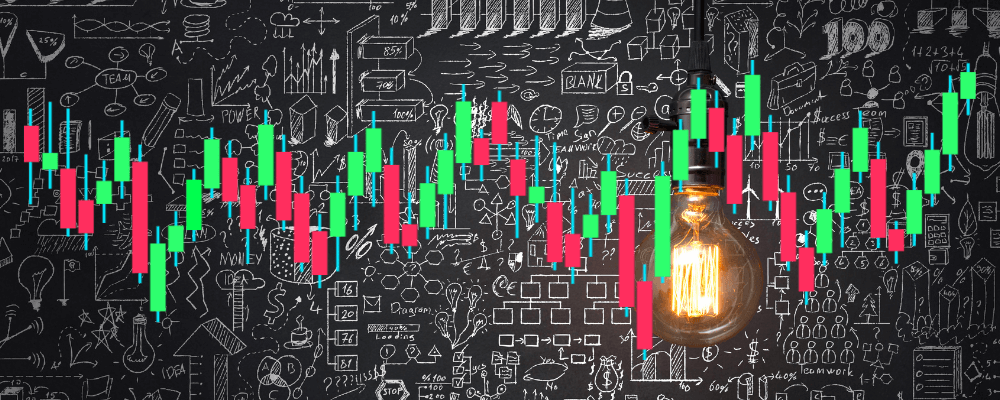
It’s important to choose a strategy that is appropriate for your individual circumstances and goals. That being said, here are the five most popular forex trading strategies that many traders find useful:
1. Trend-Following
This strategy involves buying and holding currencies that are trending upwards, and selling those that are trending downwards. It’s based on the idea that trends tend to persist over time, so a currency that is appreciating in value is more likely to continue doing so than one that is depreciating.
2. Range Trading
This strategy involves buying and selling currencies within a defined price range. It’s based on the idea that prices will bounce back and forth within a range, and a trader can profit by buying low and selling high within that range.
3. Position Trading
This long-term strategy involves holding a currency for an extended period of time, potentially several months or even years. It’s based on the idea that fundamental factors (such as interest rates or economic indicators) will have a larger impact on price over the long term than short-term market fluctuations.
4. News-Based Trading
This strategy involves using economic and political news and events to make trading decisions. For example, a trader might buy a currency if they expect a positive economic announcement from the central bank of that currency’s country.
5. Carry Trade
This strategy involves selling a currency with a low-interest rate and buying a currency with a high-interest rate, in the hopes of earning the interest rate differential over time.
As I have said, it’s also a good idea to test out any potential trading strategy using a demo account before committing real money to trades. This will allow you to see how the strategy performs in live market conditions and make any necessary adjustments.
Proper Risk Management In Forex Trading
Risk management refers to the strategies and techniques that traders use to minimize the potential risks involved in trading currencies. Risk management can help us to protect our investments, limit our losses, and increase our chances of success in the forex market. Some strategies for effective risk management include:
- Setting Stop-loss Orders: A stop-loss order is an order to sell a security when it reaches a certain price, and is designed to help limit potential losses.
- Using Take-profit Orders: A take-profit order is an order to sell a security when it reaches a certain price and is designed to help lock in profits.
- Diversifying Your Portfolio: Diversifying your portfolio by investing in a variety of currencies can help to mitigate the impact of any one trade going against you.
- Managing Your Leverage: Leverage allows you to trade with more money than you have in your account, but it also increases your risk. Be sure to use leverage carefully and only trade with money that you can afford to lose.
- Sticking To Your Trading Plan: Having a solid trading plan that outlines your goals, risk tolerance, and strategies can help you stay disciplined and manage your risks effectively.
Forex Trading Psychology
Trading psychology refers to the mental and emotional factors that can influence a trader’s decision-making process. It includes the psychological biases and emotions that can affect a trader’s ability to make rational decisions, as well as the strategies and techniques that traders can use to manage their emotions and improve their decision-making skills.
There are several strategies and techniques that traders can use to improve their trading psychology:
- Develop A Clear And Objective Trading Plan: Having a well-defined trading plan can help traders to make rational, disciplined decisions and avoid being swayed by their emotions.
- Maintain A Disciplined Approach To Trading: Sticking to a trading plan and avoiding impulsive trades can help traders to avoid making costly mistakes.
- Manage Emotions Effectively: Learning how to recognize and manage emotions such as fear, greed, and hope can help traders to make more objective decisions.
- Take Breaks And Manage Stress: Trading can be stressful, and taking breaks and engaging in stress-reducing activities such as meditation or exercise can help traders to maintain a clear and focused mind.
- Seek Out Educational Resources: There are many resources available, including books, courses, and mentorship programs, that can help traders to develop their knowledge and improve their decision-making skills.
3. Fund Your Trading Account
The final step is funding your trading account and starting on trading with real money to make real profits. But always keep in mind that you should already have well-structured forex trading strategies. If you don’t want to do forex trading yourself, then try forex copy trading.
Forex Market Open Time In The Philippines
The Forex market is open 24 hours a day, 5 days a week, except on weekends. Forex trading begins each day in Sydney and moves around the world as the business day begins in each financial center, first to Tokyo, then London, and New York. The market is open from 9:00 AM in the Philippines (Manila time) on Monday and closes at 5:00 PM on Friday. The exact opening and closing times depend on the specific financial center, but the market is generally open for a total of 12 hours per day.
Disclaimer: Trading in the forex market carries inherent risks, including the potential for substantial losses. The value of currencies may fluctuate and may be affected by a variety of factors, including economic, political, and market conditions. It is the responsibility of the trader to carefully consider their risk tolerance and financial situation before trading. Only invest what you can afford to lose!
That’s all I have for you in this blog post, let me know in the comments if you have questions or suggestions and I will get back to you as soon I see your comments. Good luck!
